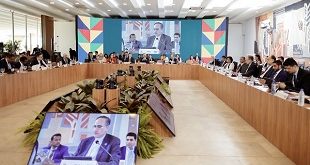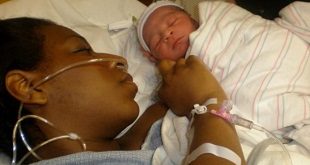
By Patrick Kamara
An adrenalin filled war junky see things he will never forget
June 8, 1998 remains a day of untold grief in the Rwenzori region, in south western Uganda. It reminds many of the gory images after the deadly attack on Kicwamba Technical College by rebels of the Allied Democratic Force (ADF). Around that period the ADF was gaining momentum attacking villages and leaving a scorched earth scenario. Attacks had almost been happening in all the sub-counties of Kasese and Bundibugyo districts that neighbour Kabarole in the South and south west respectively.
From the Bundibugyo axis, these attacks were coming even closer to Fort-Portal, the main town in Kabarole district, given the fact that the municipality is just a few kilometres from the Bundibugyo(Now Ntoroko) district boundary in Kicwamba sub-county on the foothills of the Rwenzori Mountain.
The morning, very early, I received a call about the attack surprisingly and of all people from Shaka Sali of Voice of America (VOA). The power of satellite telephone communication had made it possible for someone who is very far way on the Eastern sea board of the United States to be the first to know.
He had gotten scanty information through the ADF rebel propaganda that they were attacking Kicwamba UPDF military detach.
Because of the time difference it was late in the evening in Washington while coming to dawn in East Africa.
Shaka would always receive almost daily updates from the rebels on whatever they were doing. That is why he got to know about the Kicwamba attack earlier than me even though he was thousands of miles away.
My phone rang at 5:30am.
“Mr. Kamara… I am sorry to disrupt your sleep but something is terribly wrong in Kicwamba….”
I immediately recognised the distinct baritone voice of Shaka.
He told he had heard about an attack and that it was likely Kicwamba Technical College was on the receiving end of the rebel fire power.
I said, “Kabale Kid” is this real? By the way Shaka loved being referred to as the “Kabale Kid” he even had a baseball cap with those two words emblazoned on it.
Shaka is a man proud of his heritage and the perseverance to reach the very top.
“You might need to check it out,” he said.
I quickly freshened up, took a glass of cold milk and headed for my 250 cc Honda Motorcycle in the garage downstairs.
From Rukidi Street in the heart of Fort-Portal town where I lived, it would may be take less than ten minutes if I raced my machine to Kicwamba College.
By the way this very Honda motorcycle had killed three gold dealers in the DRC in succession before I received it from my former news manager Samuel Guma.
He had said: “Here are the keys; take it but don’t be its next victim”. It was fast and so tempting as I would race and see things disappearing from my rear view mirrors.
I am told the gold dealers working former Tooro tycoon John Katuramu in the Congo gold mines had been excited about the extremely fast Honda 250 cc that had a twenty one litre tank. The three had died one after the other while riding in those narrow village tracks in Ituri province near Bunia town in the DRC.
I had been warned so I always used it with great care. However this story of a rebel attack required me to push the machine almost to its limits to be able to catch part of the action in Kicwamba. It was not going to be the usual ride.
I raced my Honda through Kisenyi on the Bundibugyo road, via Rwengoma, past Kahinju secondary school at dawn. I was stopped by a group of people near Nyakasura School. They said it was dangerous for me to continue because they were running away from sporadic gunfire.
Whether it was stupidity, bravery or both I continued with my journey to Kicwamba, you could have referred to me then as an adrenalin filled war junky.
I say this because up to now I have never known why I was getting so much interested in covering war and anything else was boring and not news for me!
It was at Kitarasa trading centre where I encountered a large number of people running.
The young, the very old and women were on the run. Here are a people who had carried the little they could afford and run as a fast as they could to get far away from the sound of gunfire.
An old woman pleaded with me to return to Fort-Portal.
Speaking in my native Rutooro in a trembling voice on that very cold and horrific morning the old woman had said … “ekyaro Kyaburwa abakama” literary meaning there was anarchy I should go back.
When I told her I was continuing she looked at me and perhaps thought I was may be a senseless young man on a suicide mission.
I restarted the engine and raced the machine through Bukuuku to Karago trading centre thinking about one thing, the story. That morning some valleys around Nyakasura School were covered in mist as the early morning sun rays pierced through the horizon.
My bike almost flew, advancing from Kitarasa to Kihondo the last trading centre before Kicwamba College.
As I moved through the valley I started to fear…something inside me was kind of saying you are about to die!
I remembered that the road could have been mined. I started dodging each fresh pothole I could see on the road but that also became dangerous since I was running close to 140kms per hour on a bad road.
I slowed down and there in front of me was a dead body, blood oozing out. A few meters ahead were other bodies including of a man of mixed race half Caucasian and half Mutooro! I knew him!
I stopped and started to regret, thinking I should have taken the old woman’s advice; after all there is no story worth my life.
Before I could re-start the engine, I heard a volley of bullets being fired from behind me in the bush. It was the distinct sound of a submachine gun. Then all of a sudden there was a lot of gunfire ahead of me which meant I could not retreat or advance. I was there looking like a zombie scared to death and yet that was just the beginning.
From where I was I could see a man dressed in dirty clothes with a gun slung across his chest walking towards me.
I said my prayers thinking that was the moment I would not to tell the story. I almost got numb or paralysed in the whole body as he continued coming towards me. At that point I had given up my life because of fear and in fact I felt like I had lost all the senses!
About twenty meters away, the armed stranger in the battle field of all things called out my pet name….
”Achaali…Achaali…Abaana bafiire,” he said. He was telling the students had been killed.
I literary jumped back to life after recognising the man as Corporal Steven Runyunyuzi, a sub-county security officer; someone I knew closely. I had never freaked out to that level. I had mistaken Runyunyuzi for a rebel and somehow imagined that was my moment to die. My body and mind had given up life at that moment.
Out of pity and sorrow corporal Runyunyuzi knelt to the ground and bent his head to the grass like a Muslim in prayer and cried. He had helplessly seen it all as his unit was being over powered by the rebel firepower.
“We told them…we gave them intelligence…they could not listen. This should not have happened…we told them these bastards are coming,” Runyunyizi mourned. He was now blaming the military leadership of the 309th brigade based in Muhooti barracks for not having been proactive.
AS battle wagons drove past us heading for the college under attack. I considered it safe to advance too. In the centre of Kihondo trading centre was a young man who was a student in Kicwamba and his father was a radio Engineer.
He was crying, mumbling words uncontrollably. He held my hand; with tears rolling down his cheeks, he led me through a narrow corridor as he squeezed my hand tightly.
“Come…come and see…” he said.
Behind the house at their doorstep lay the mutilated body of his dear mother!
The rebels had moments earlier attacked this town too and killed several people including the mother of my friend Chris.
He had escaped the rebels at the college only to find another rebel group had attacked Kihondo trading centre killed several people including his mother.
Chris was mad. He took me to a higher ground and pointed to the mountain showing me the last group of his schoolmates now in rebel captivity as they disappeared over the horizon in the mountain ranges.
“Those are my friends and down here is my mother….what is going on. Can somebody tell me?” he mourned. The agony was too much and I could not even say a word because I was also lost for words.
I looked at him as he cried and moaned.
Six years later Chris joined the army and the last time I met him he was on a tour of duty with the African Union peace keeping troops in Mogadishu. He is in the tank unit as a technician.
By 7am, the UPDF was firing Katusha rockets and heavy artillery on the mountain ranges. In fact the heavy weapons caused panic among the rebels and some students managed to escape but majority were abducted.
The moment the rebels disappeared in the mountain ranges no amount of artillery firepower would smoke them out which also meant the abducted children could not be rescued.
The scene at Kicwamba technical college was like a horror movie.
Rebels had locked up over eighty students in the dormitories and torched them. I knew almost half of the students.
I had the previous weekend attended their college internal debate as a guest. There was one particular student who had tried to get out of the dormitory but could not move past the burglar proofing. The lower torso had been badly burnt with only the chest and head that was out. He was still shaking his head a little bit when I reached him moments before he breathed out his last. That day I saw the extreme cruelty of man! Survivors were meanwhile walking from nowhere to nowhere, talking to themselves and generally scared of new faces.
Villagers had started to gather at the school campus but this was frightening the survivors. They thought any stranger was coming to kill them. I remember a child who escaped from rebels but when he met all these new faces at the school, he dived into the bush. He had to be hunted down like an animal.
They were traumatised. Among the survivors, I knew one girl, Annet Najjemba. I went about looking for her. She had survived without a scratch, but because she was new in the college and now all this mayhem had brought many strangers at the campus she got traumatised, I found her hiding.
Upon seeing the only person she knew in a sea of strangers after the ghastly murder of her colleagues, Annet ran towards me. She called my name, hugged me and could not let me go. These gory images had confused her brain, and the emotional pain was too much to bear.
Kicwamba Technical College was never the same again. Inside the burnt dormitories were scarred bodies of the students burnt beyond recognition. There was one pattern I noticed the dead had fallen together in small groups of eight or ten. I think out of so much pain and horror the poor kids had held each other’s hands and died together in the blazing fire. Seeing these bodies and how they had met their death was very traumatic. Relatives and even any other person that witnessed these scenes can never completely recover from such a shock. There was a sombre mood all over Tooro and anger as well as the people moaned the dead.
I went back to Fort-Portal, filed my story for both VOT FM and Voice of America. I gave a lengthy live interview to Shaka Sali; my first to an international news channel.
President Museveni arrived in Kicwamba the following day.
The brigade commander, Col. David Kaboyo, had a rough time with his commander in chief. Museveni blamed it on his soldiers. Some were arrested for showing cowardice in action. As a former guerrilla leader himself, Museveni wanted to know which routes the rebels used to retreat. Col. Kaboyo made an error to say the rebels had retreated through Musandama village. The enraged Museveni shouted at the soldier and stopped short of slapping the colonel.
“Tumbavu…I don’t know Musandama…show me the direction,” he shouted.
Col. Kaboyo pointed into the direction of Musandama, the mountain range he was meaning.
”Why dint you fire at them with heavy artillery,” Museveni asked.
“Sir…but they had children with them,” the colonel answered in a rather trembling voice. Museven was not done.
“If you find a snake coiled in your eggs, do you sing a lullaby for it to leave?” he asked the colonel.
I understood this to mean that the soldiers should have fired the heavy guns at the rebels and the rest would have been, as they say, collateral damage. The attack on Kicwamba had opened the gates of hell. A lot more was on the horizon.
 The Independent Uganda: You get the Truth we Pay the Price
The Independent Uganda: You get the Truth we Pay the Price



